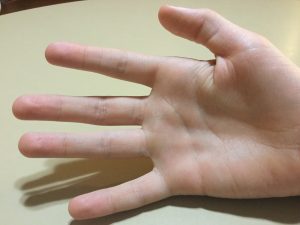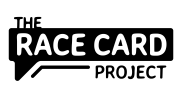 Tracy Hart,
Tracy Hart,
Washington, DC.
Yes, I’m from a tobacco-pickin, Southern white trash family, and I mean that in the most endearing way. Some stereotypes my family breaks: we were Southern but poor sharecroppers rather than slave-owners. Other stereotypes my family embraces: using discriminatory language in equal measure across all those who are not white Southerners. Yes, I’m mortified, but it leaves me wondering: is it more honorable to be a closeted racist or one who is out in the open? As for me, I believe we are all Africans in origin (ultimately — from the Rift Valleys), my sharing of which almost caused my family to choke on their turkey one Thanksgiving. I can only hope that my daughter finds her own authentic voice in all of the cacophony.
REPOST FROM NPR:
NPR continues a series of conversations from The Race Card Project, in which thousands of people have submitted their thoughts on race and cultural identity in six words.
When Tracy Hart says she’s from “a tobacco-pickin’, Southern, white trash family,” she says that she means that in the “most endearing way.”
“Some stereotypes my family breaks. We were Southern but poor sharecroppers rather than slave owners,” Hart tells NPR special correspondent Michele Norris, founder of The Race Card Project. “Other stereotypes my family embraces, using discriminatory language in equal measure across all those who are not white Southerners.”

The term “white trash” shows up fairly often in the six-word submissions for The Race Card Project, Norris says, as do words like hillbilly, redneck, hayseed and bumpkin. “People are sometimes writing about pain, sometimes they’re using humor to distance themselves from the pain, sometimes it’s associated with a kind of nostalgia,” Norris says. For Hart, it may just be all of those things.
Many people who have written to The Race Card Project have used jarring phrases to describe their roots.
Hillbilly White Trash? I’m Oxford educated — C. B., West Va.
“Appalachian” means “none of your business” — Amy Tanisha, Petaluma, Calif.
Hillbilly – the wrong kind of white — TR Kelley, Swisshome, Ore.
I’m Appalachian — it’s an invisible ethnicity— Catherine Vance Agrella, Asheville, N.C.
Poor white trash, not welcome here — Tracie Combs-Cantu, Austin, Texas
Do hillbillies have white privilege too?— Tony Van Winkle, Knoxville, Tenn.
But when it comes to “white trash,” she is probably on the fringe. Hart is a water resource economist at the World Bank in an intellectually elite environment where her colleagues might be surprised to hear her describe herself this way.
Raised outside of Houston, Texas, she spent summers visiting family in the South. Often, these family members were just getting by, like her great-uncle Reece Billings, who lived near Independence, Va.
“He died within the last 10 years, never having had indoor plumbing, never having had electrical wiring in his house, never having had a telephone line to his house,” she says. “The water for the kitchen came from the stream through a PVC pipe then dumped into a sink and then there was an egress PVC pipe that took it back to the stream downhill. And that was the only running water in the house.”
Hart’s grandmother grew up in that house. Hart has come some distance from that now. She’s one of the most educated members of her family, an education paid for in part from that “tobacco-pickin’ ” she references in her six words.
Tracy Hart’s great-uncle Reece Billings harvests tobacco on a North Carolina farm.
Tracy Hart’s great-uncle Reece Billings harvests tobacco on a North Carolina farm.
Lyntha Scott Eiler/Library of Congress
Her interests and ambitions have always set her apart from many members of her family. She’s a trained opera singer and went to school at U.C. Berkeley. She lived overseas for several years and she says that she speaks 10 different languages. She’s used to cultural bridges. But she says the hardest bridge for her to cross is when she returns home and faces the judgment of her rural, geographically isolated family.
The term “white trash” is something that she embraced. But she says her family “might think that I’m being a bit uppity in saying that. … I’m able to admit it because I’ve stepped out of it. … It’s where I’m from — but it’s not where I’m at.”
It is a pejorative term. It is harsh and it is a slur — but it can also be used as a shield. “I have members of my family who will say something about, ‘Yeah, that’s just because we’re white trash,’ and laugh,” she says. “And if someone else said that they would not be amused. But within the family using it is OK.”
For those in the Deep South, she says, the term has been embraced by a significant part of poor people who feel misunderstood. “They feel misunderstood because of the heavy legacy of slavery and segregation and poverty,” she says. “And I think part of their feeling misunderstood is to take on or embrace that term, which is self-denigrating but it also says, ‘We’ve been hurt, too.’ “








Comments are closed.